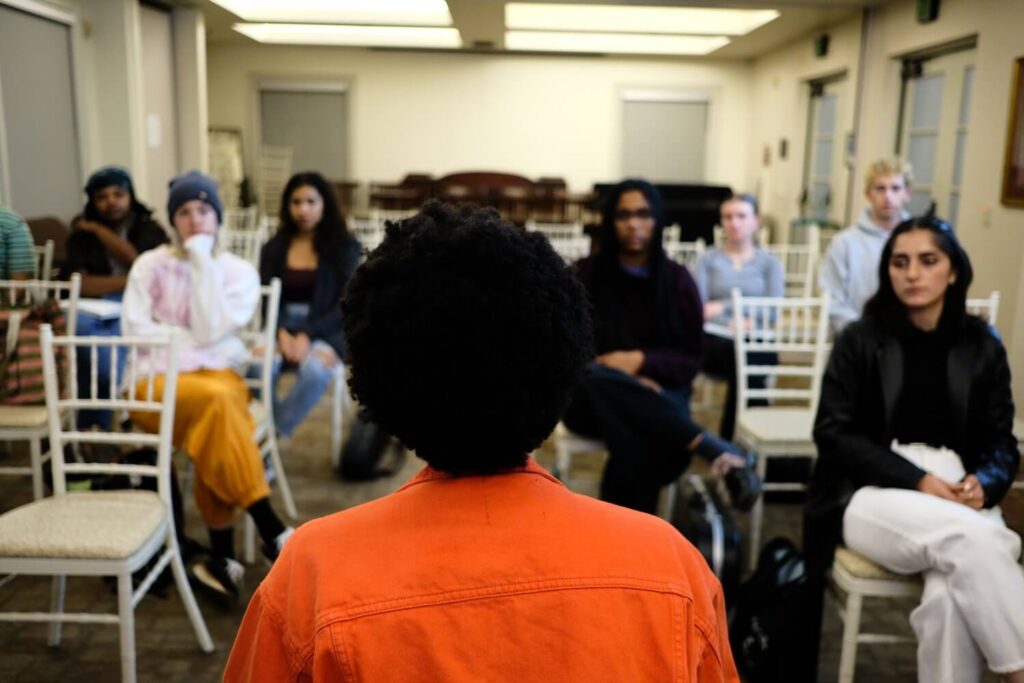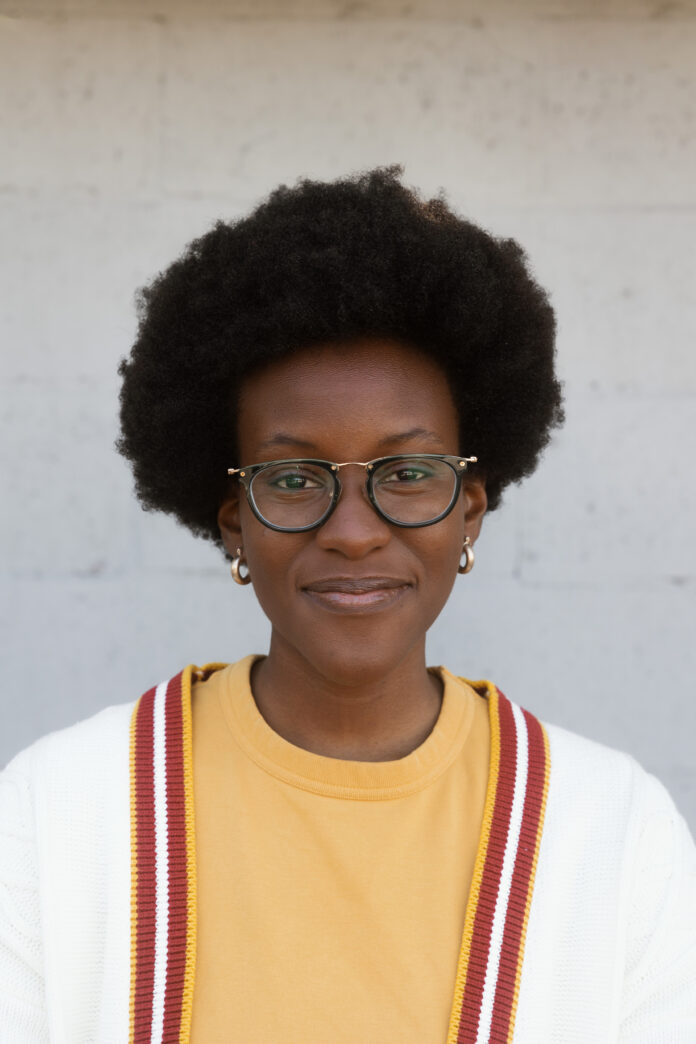The Oxy Persuasion club hosted a talk on race and forgiveness that was given by Kimi Katiti, an LA artist and public speaker. Oxy Persuasion club is a student-run organization that emphasizes free and independent discourse about issues important to Occidental students.
Katiti makes YouTube videos on race relations, and her most viewed video is titled “This Is How I ESCAPED The Cult Of WOKENESS.” In the video, Katiti discusses her experience with social justice in college and what she calls the well-meaning Trojan Horse that is wokeness. According to Katiti, being “woke” does not describe being progress-minded or socially aware, but rather having the belief that hostile forces have infected every aspect of your life.
Over the course of the talk, Katiti referred to her experience growing up in Uganda, Tanzania and South Africa to offer historical precedents in favor of a model for addressing America’s racism that relies heavily on forgiveness.

“In South Africa, Nelson Mandela opened a dialogue with the Afrikaners, some of whom were people who formed the apartheid regime,” Katiti said. “They were technically deemed the oppressors, but Nelson Mandela invited them to the table and didn’t demonize them, and I think that’s absolutely important to today’s landscape.”
While recently the word “woke” has generally been used in relation to leftist progressive political beliefs, according to Katiti, her use of the word has no such partisan connotation.
“There are people on the right who have as much of a woke mentality as people on the left,” Katiti said. “I wouldn’t even call it a political thing. I think it’s just the belief that there’s an oppressive power above you and that it’s influencing so much of your life and holding you back but in an unprovable, intangible way.”
Katiti said this is a paralyzing force that hurts its proponents and strips them of individual responsibility.
“[Wokeness is] believing that whatever oppressive power above you, whatever that might be, permeates every area of your life, and you see it manifesting in different ways,” Katiti said.
While Katiti said that she has personally experienced racism, she also said that it has been wokeness, rather than bigotry, that poses the ruination of the marginalized.
“I think there is a degree of interpersonal racism, though I don’t think it’s that powerful to stop you from doing and achieving things,” Katiti said. “If you fall into a marginalized identity, I think we have a lot of systems in place that push back against any form of prejudice, racism or segregation.”
Katiti said that the woke belief system left her feeling paralyzed and helpless.
“I started seeing myself as less than, and eventually I, like my whole worldview, allowed me to become anxious and depressed,” Katiti said. “I became less capable of leaving the house or doing normal everyday things because I had this idea that I live in a system where everyone’s working against me.”
In her talk, Katiti focused on the importance of communication with those we feel wronged by, and exposure to opposing viewpoints.
“This is the great thing about Persuasion,” Katiti said. “We’re able to safely talk about different ideas without being like, ‘Oh no, you cracked my bubble wrap.’ We have to challenge one another and, in challenging one another, make each other stronger, and build each other up.”
This is in line with the purpose of Oxy Persuasion, which, according to Anirudh Krishnakumar*, the president of the organization, is meant to provide a venue for all viewpoints to be discussed and considered.
“The mission of the club is to foster independent discourse on campus,” Krishnakumar said. “The idea behind Persuasion is one of mutual respect. You might have a certain perspective; I might have a certain perspective. You and I might not agree, but we can respect the inherent human dignity that each of us have and realize that both of our perspectives can be true at the same time. And we also don’t need to agree, for instance, to be friends, or even have the same mission.”
Oxy Persuasion’s focus on having open and honest conversations between students, requires an additional level of student leadership in the club’s activities, according to Nora Manukyan, the club’s vice-president and discussion moderator.
“We just take care of the paperwork, bring in speakers and run the behind-the-scenes, but Persuasion itself is student-run,” Manukyan said. “People show up. They’re the ones submitting the questions. They’re the ones talking during the meetings, and meetings are usually just discussion-based open discourse.”
Gabriella Knutsen, the club’s treasurer, said that due to the club’s commitment to open and honest conversation, students involved must learn to be comfortable with making and tolerating mistakes along the way.
“In order to flush out the truth, you have to be willing to know that I’m going to make an error and you’re going to make an error in that pursuit,” Knutsen said. “That grounds us, allowing multiple opinions to be expressed.”
To Katiti, such a commitment to open discourse and its inherent messiness is important to meaningful progress; although, it is lacking from many college campuses.
“Tactics of silencing are things that dictators use, and I don’t think students want to fall into that pattern,” Katiti said. “I would just say college campuses, and anyone involved in programs, should allow for more open dialogue. And just think progress, think forward, think grace. We’re all humans. We’re all fallible. We’re not going to get perfection in this lifetime.”
Contact Henry Dorosin at dorosin@oxy.edu
*Anirudh Krishnakumar previously worked for The Occidental
![]()































